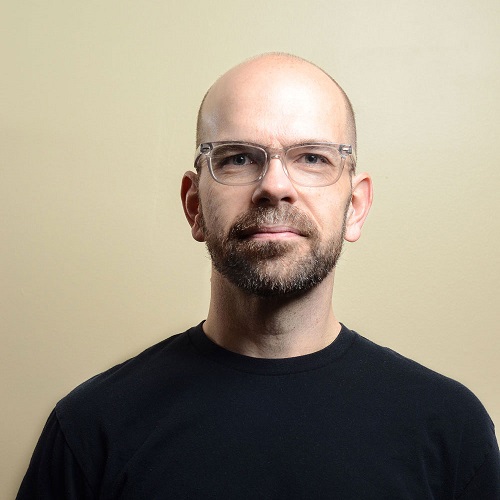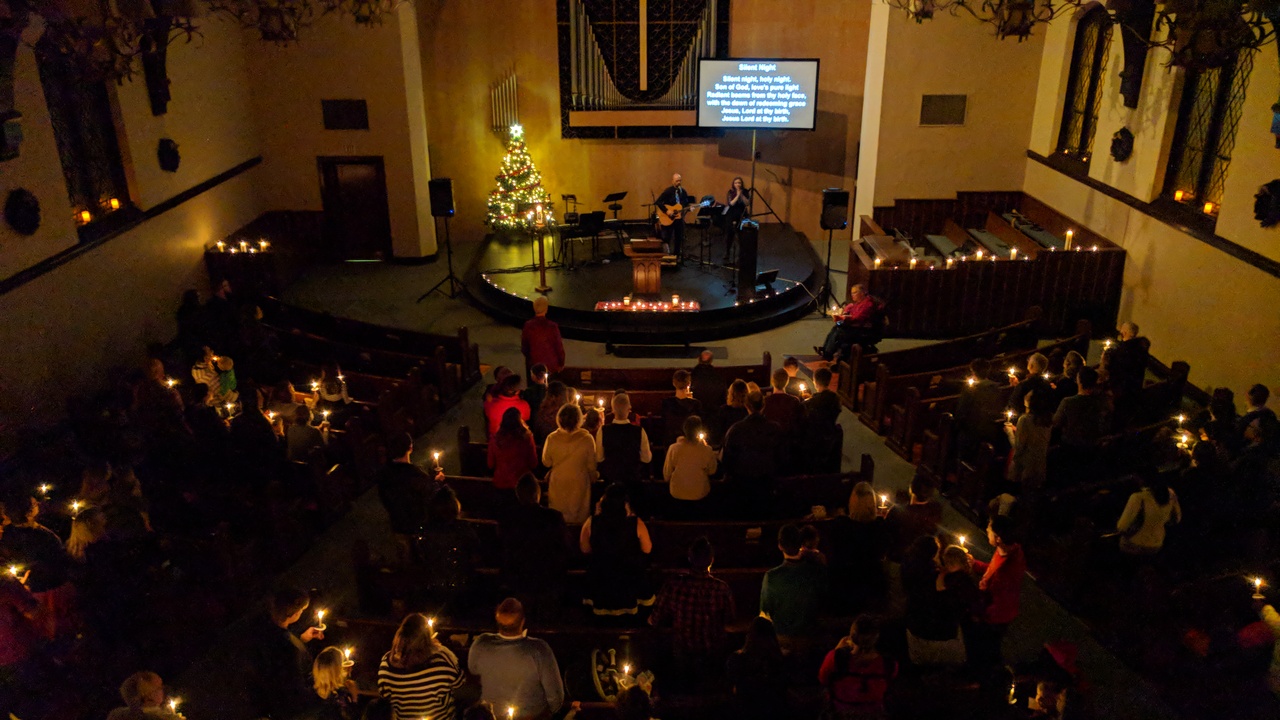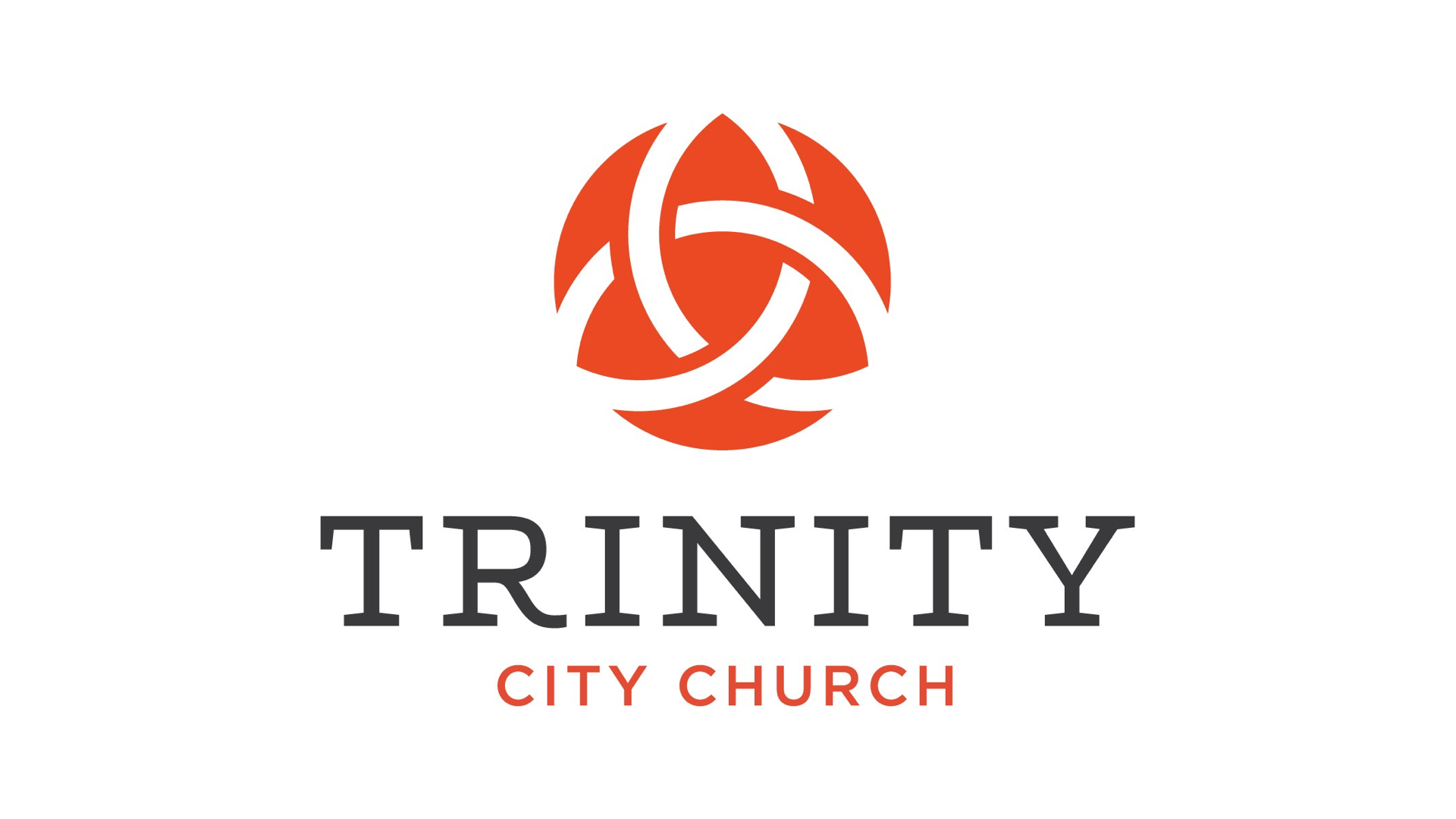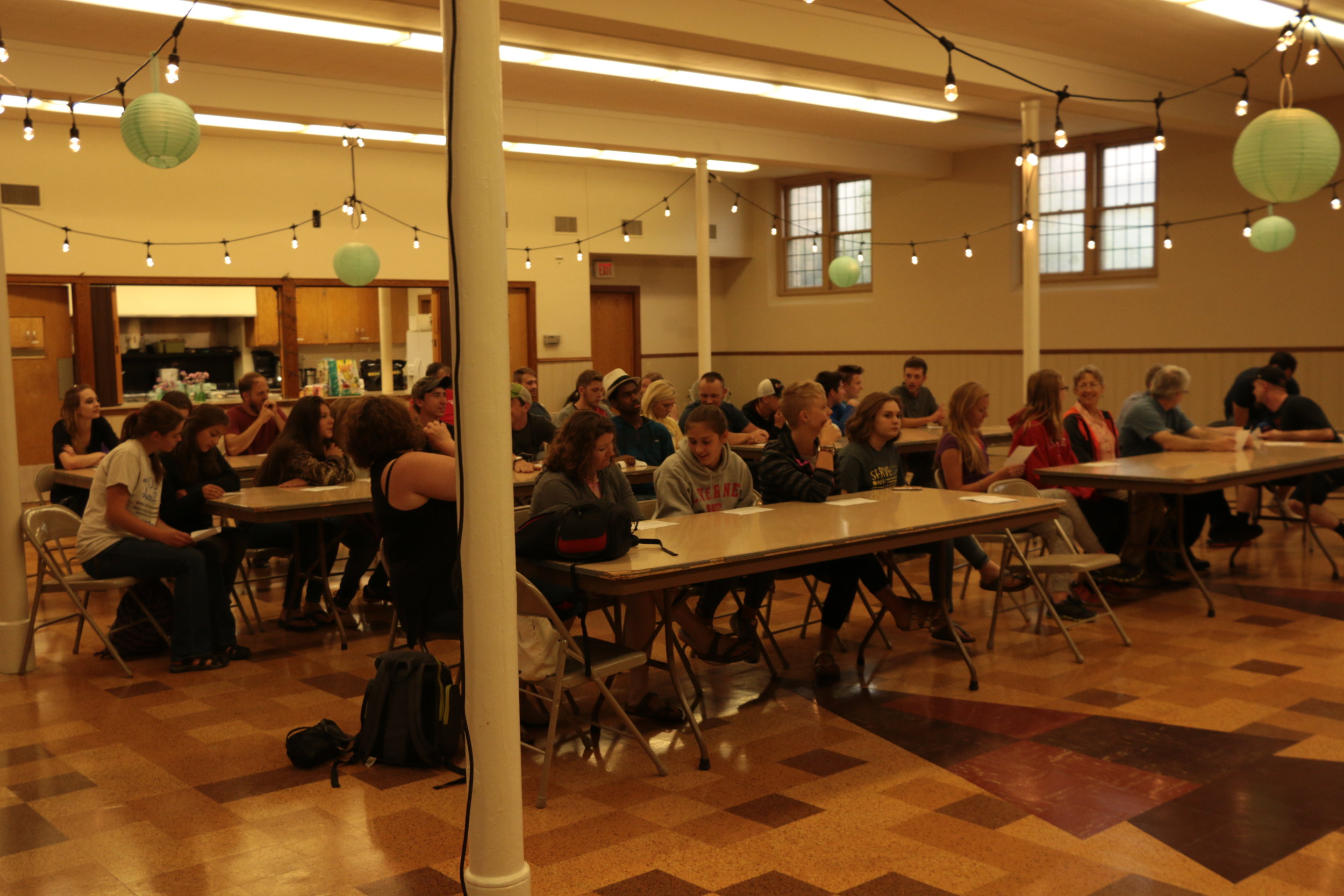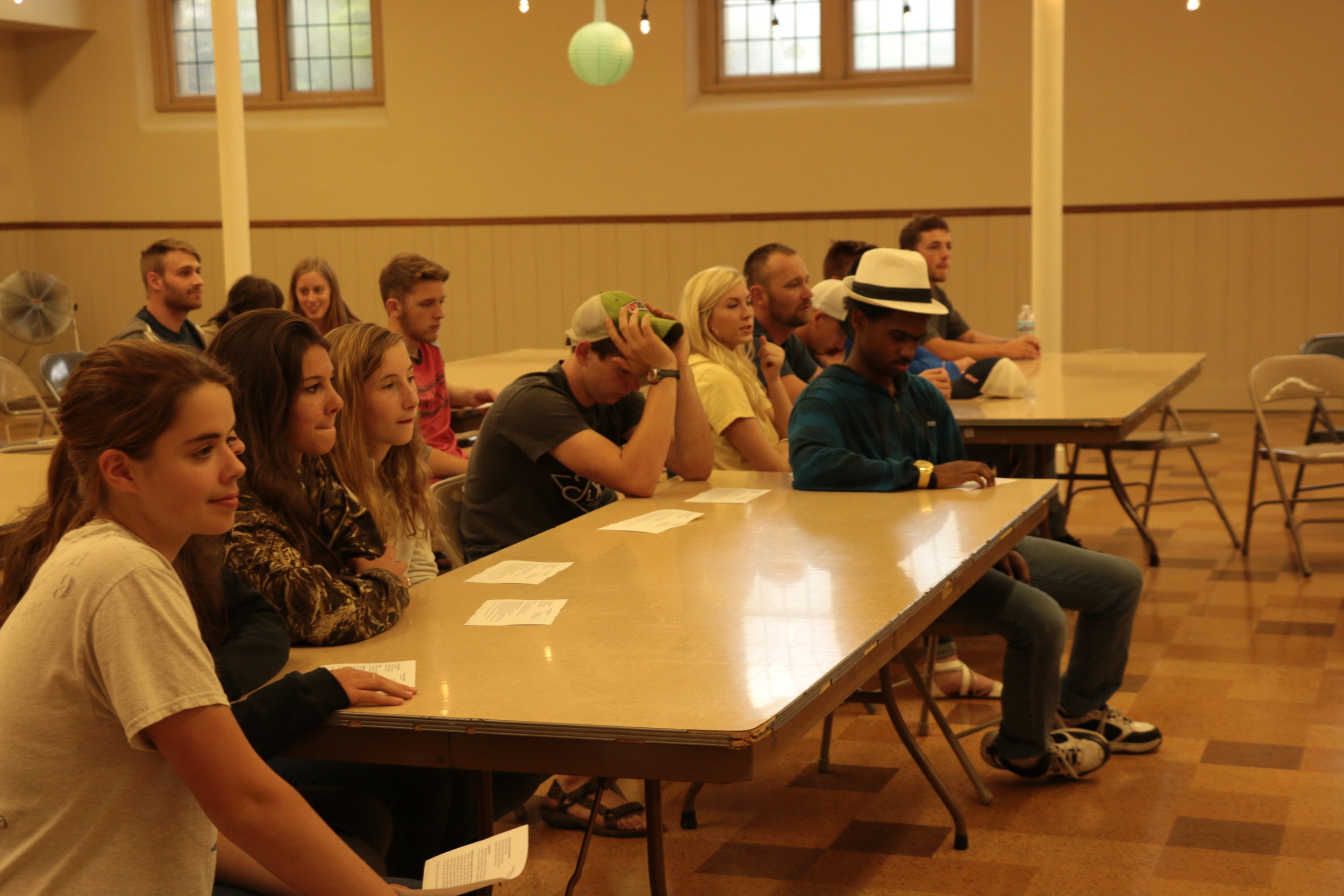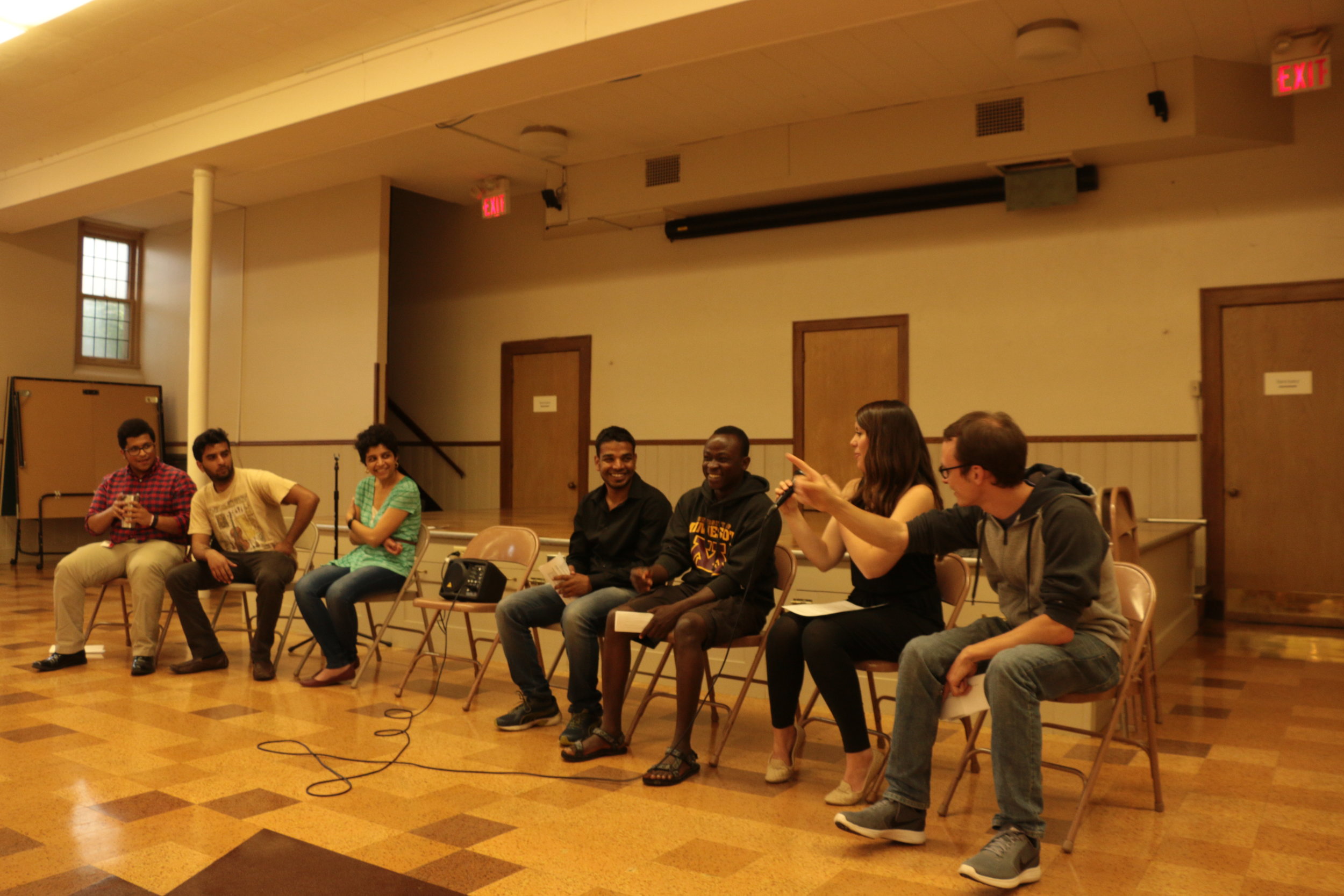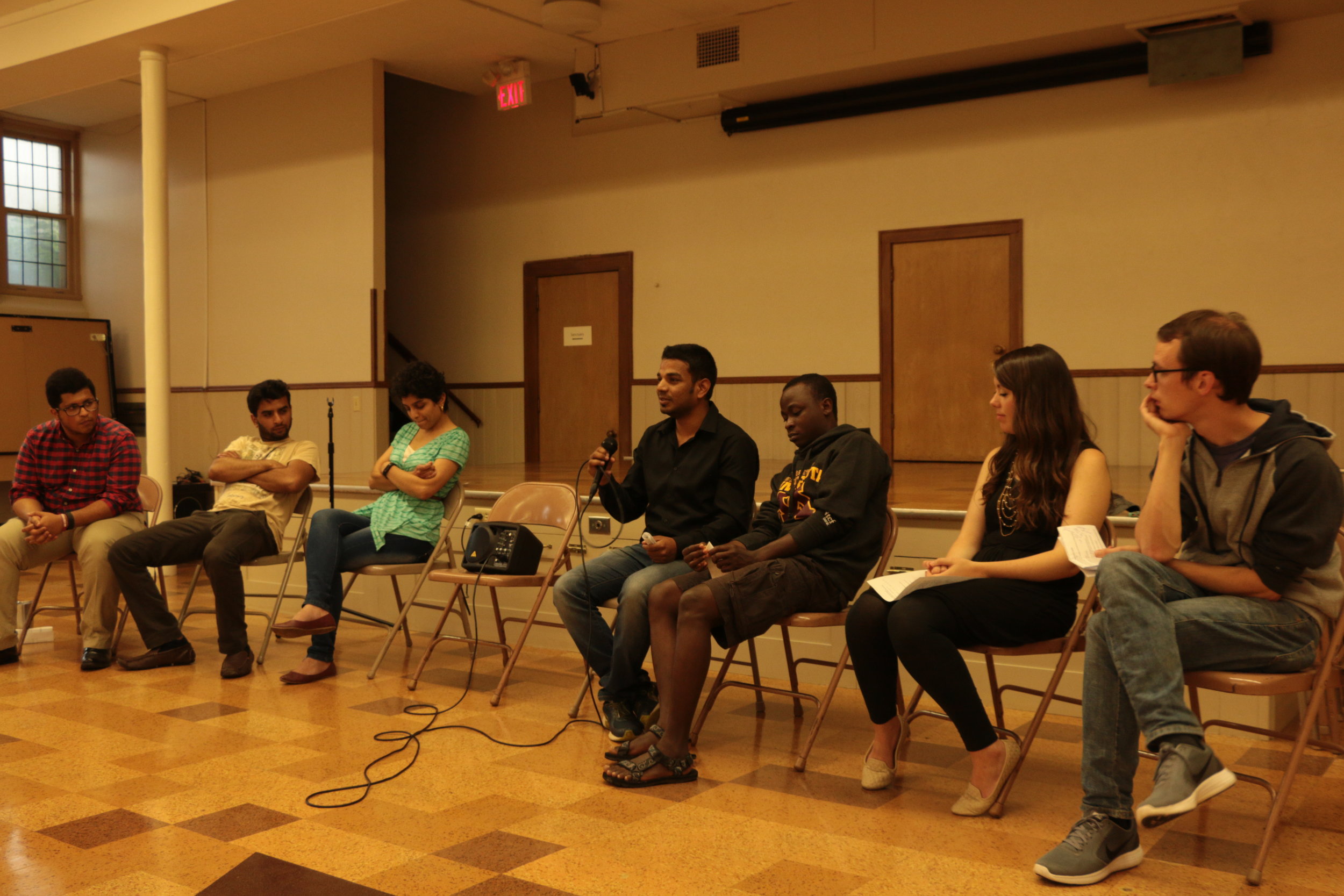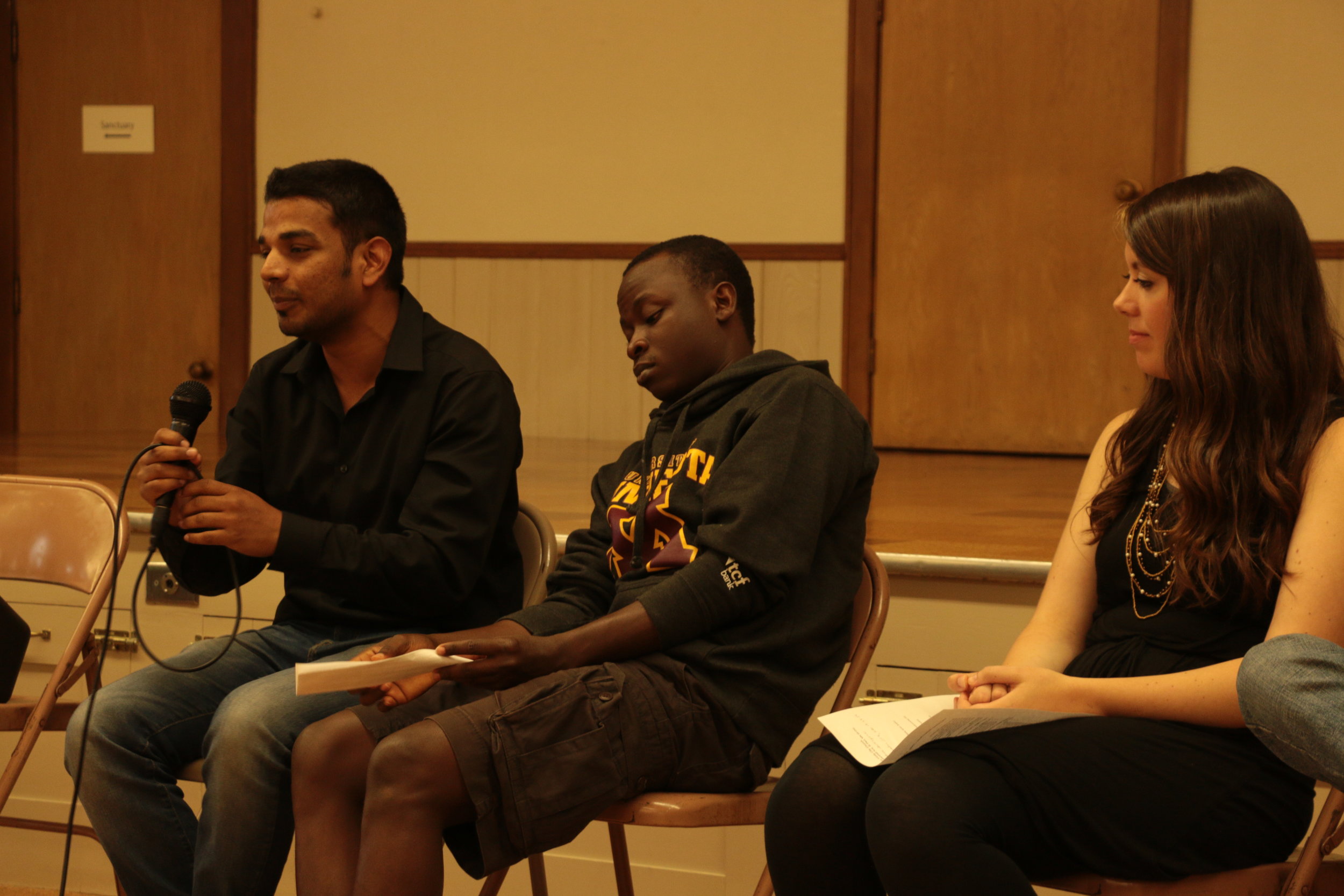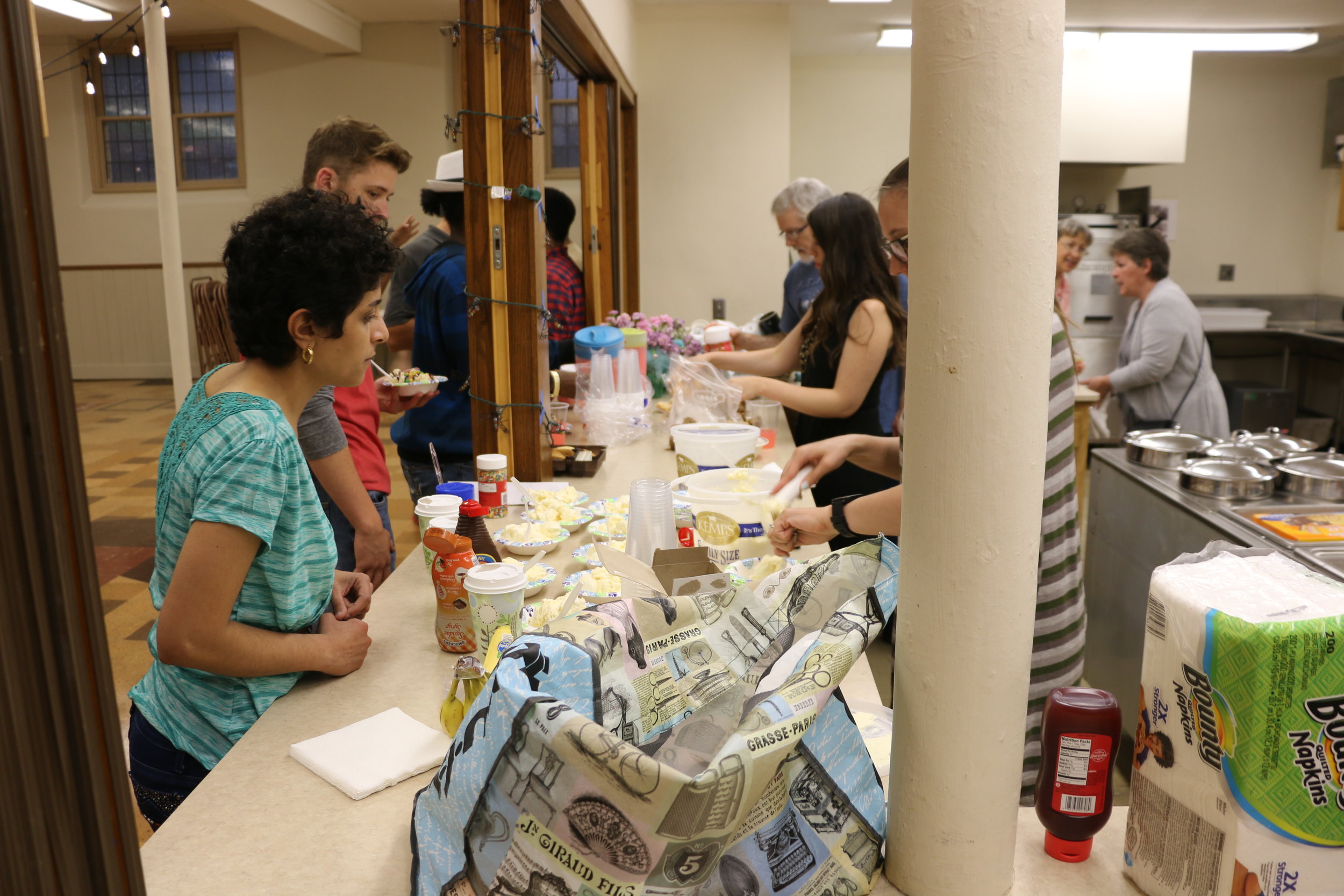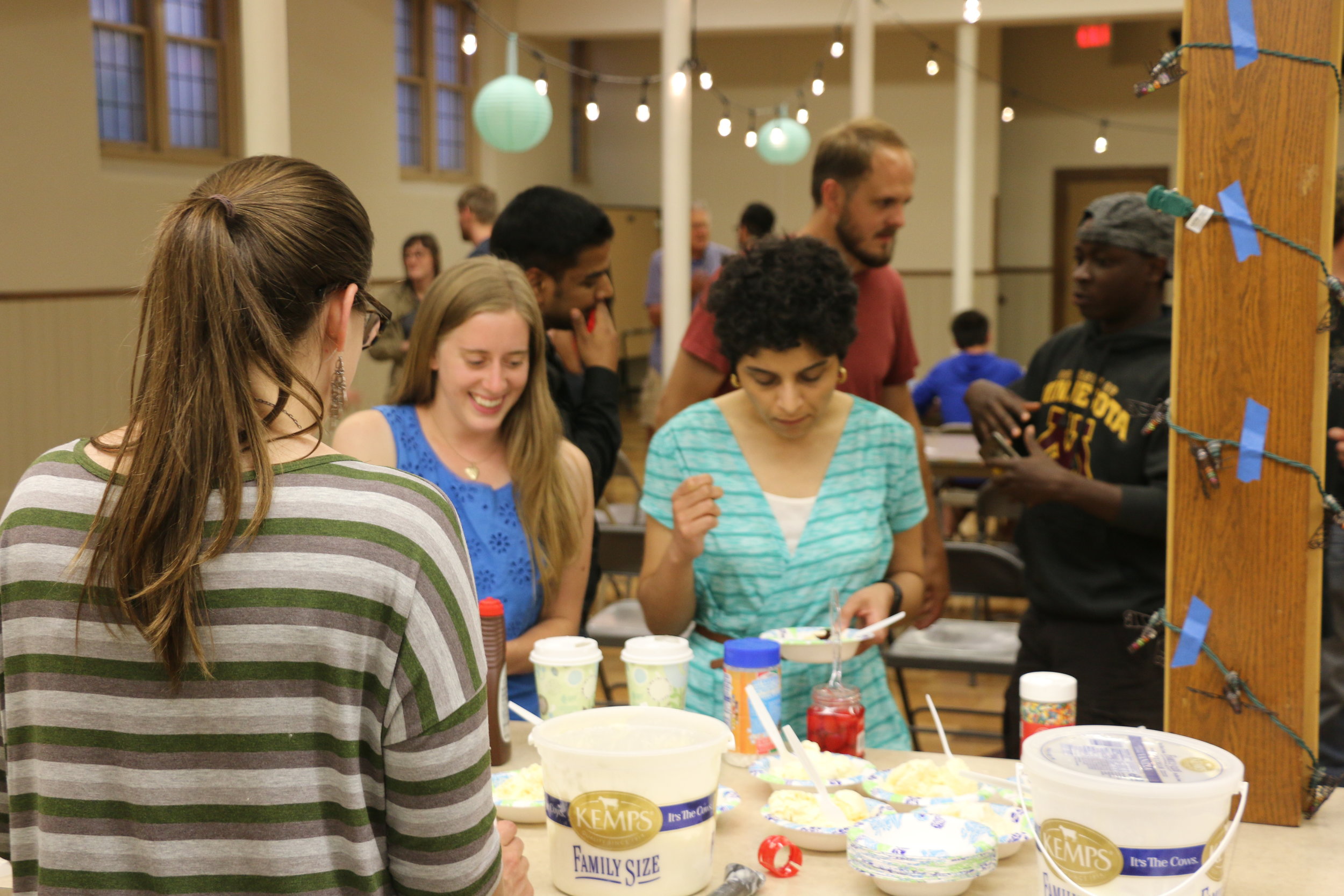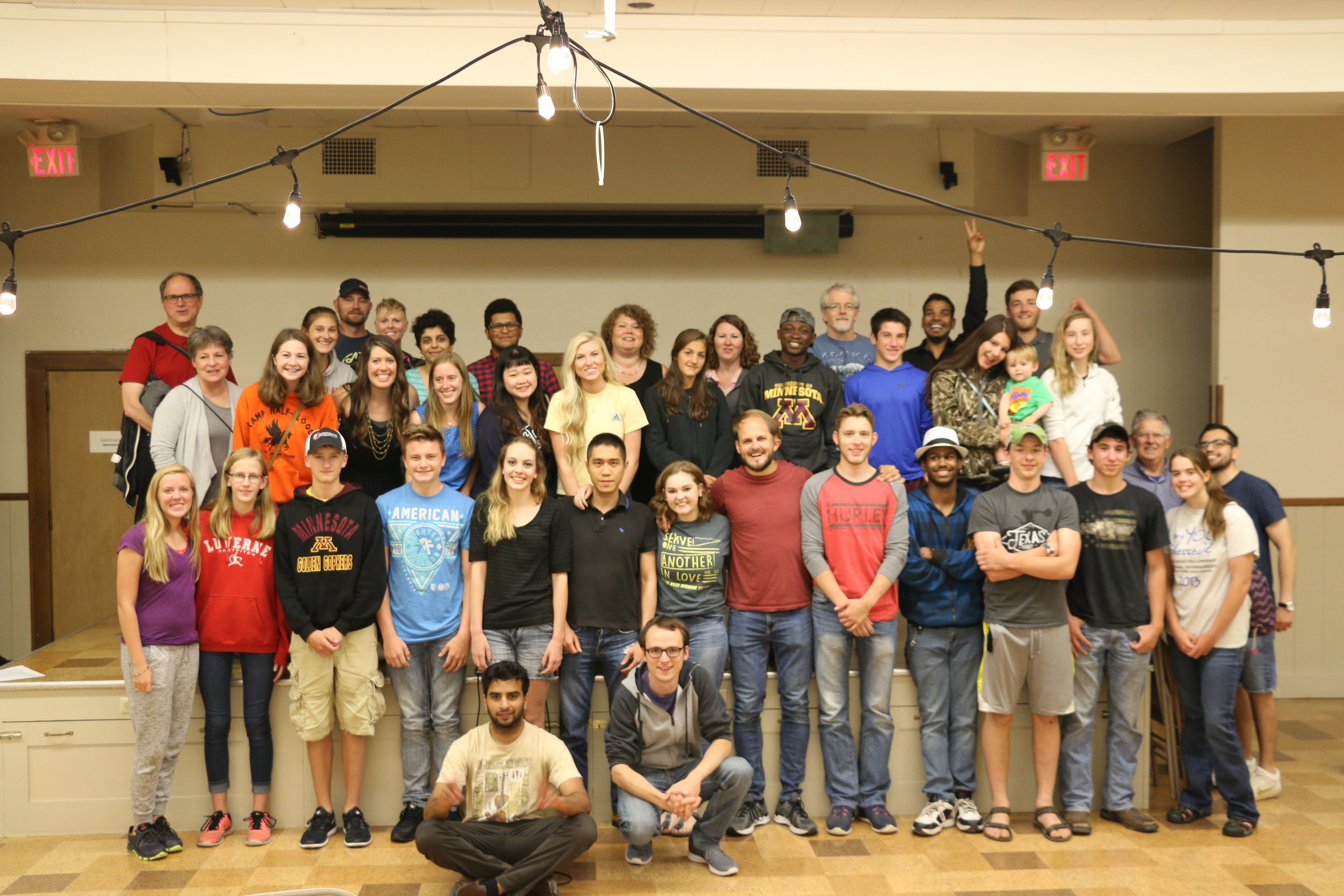Here are the prayers for the Prayers of the People portion of our Sunday Gathering last Sunday:
Father, we thank you for this opportunity to come together to worship you.
We thank you for the brothers and sisters who work faithfully to make this opportunit a reality at Trinity City Church.
Father we thank you that you use broken people to do beautiful things.
God we are so thankful that when we were lost and stuck in our filth, that you adopted us, and now you now call us your sons and daughters.
We pray that with this mindset that we would see the broken, the hateful, the unlovely, and that we would love them.
We ask that your Holy Spirit would indwell us and give us a love that overcomes hate and fear.
We pray that your Holy Spirit would shine through us in this dark world, that we wouldn't be another group with an agenda, but that we would be a people transformed by your power.
We pray that Trinity would begin to resemble the first church in Acts, that we would be united in serving each other and those around us.
We thank you for Jesus, for his example of what a true servant looks like. We ask for the strength to emulate that kind of service for this church.
Lord, in your mercy.
Hear our prayers.
We pray for those within the church who are or feel disconnected. They are not forgotten by you or us. We pray for singles, people who are struggling with or coming out of addictions, couples who are struggling with infertility, and for many other stories we could name.
We pray for a boldness to go towards other people. We pray they would fight against the feeling of being pushed to the edges of the church. We pray for a single mindedness toward you, and what you are doing in their lives. This is a sacred thing and we forget that. Father, it's so easy to see what you're not doing in our lives, to see you as not working, it takes effort and fortitude to not retreat away. Father, Jesus, and Holy Spirit, we are asking you to send away the despair and insecurities that make us prone to do our unhealthy lives. We've become comfortable in our sin or complacency.
Would you be a shield about them, protecting them from the arrows of judgement; judgement from others, satan, and especially from themselves – that they would fight for the light in the dark nights of their soul. Especially for those who are wandering through the dessert, questioning you and doubting you. You have given them these circuitous routes, and yet, we pray they could also see the manna you provide, the water you give from a rock, how you lead them with a cloud by day, a fire by night. how you provide provision that is careful, intentional, and intensely personal. You have the power to bring about your promises – whenever it pleases you. May they seek to be led by you and look forward to the day when their sun shall no more go down, nor the moon withdraw itself; for the Lord will be their everlasting light. As they ache and feel your timing that is not their timing, as they feel the brokenness in this world, may they ultimately long for heaven, and long for Jesus to come. In many things and in many ways, please bring healing. Finally, we pray for mercy in not leading them into temptation but delivering them from evil. The battle of physicality and strength is real. Help them to choose that God knows what's best for them, trusting his laws and commands are for their blessing and joy in following him.
For all of us God, may your love be more compelling than that of this world, that you would strengthen those to follow after your will and still have hope, in and for the long haul. May we find our worth and healing in the safest of places.
Lord, in your mercy.
Hear our prayers.
We pray for our political leaders. Men and women who have been entrusted with leadership over our country, states, cities, and towns. We pray that they would be given wisdom, humility, and ability to lead where they have been called to lead. Give them servants hearts that work for the common good vs their own name and career. Give them understanding to solve difficult and complex problems. Give them the ability to inspire those that they lead to join in unity the effort to preserve the good things that you have blessed this country with, but also to renew what which is broken and in need of renewal. Give them fortitude to persevere in doing what is right when things are difficult, but also humility to repent when they err.
Lord, in your mercy.
Hear our prayers.
For all the peoples of the world, that they might see the glory and power of your creation: “the earth is the Lord’s” and “those who dwell therein.” Our Father, you “laid the foundation of the earth in the beginning, and the heavens are the work of [your] hands.” “For by [you] all things were created…all things were created through [you] and for [you]…[you] are before all things, and in [you] all things hold together.”
For the body of Christ, that we may be stewards of the gifts you have given us. That we may prophesy, serve, teach, exhort, contribute, lead, and do acts of mercy. “…Since we are surrounded by such a great cloud of witnesses, let throw off everything that hinders and the sin that so easily entangles” and pursue your will wholeheartedly.
For ourselves – your people with whom you have entrusted with the gospel and who are bound to give an account – we pray for wise and discerning minds. “As each [of us] has received a special gift,” help us to “employ it in serving one another as good stewards of the manifold grace of God.”
May we be joyous caretakers of your creation. For it is written: “…whoever sows sparingly will also reap sparingly, and whoever sows bountifully will also reap bountifully… God is able to make all grace abound to [us], so that having all sufficiency in all things at all times, [we] may abound in every good work.” “Not to us, Lord, not to us, but to your name be the glory, because of your love and faithfulness.”
Amen.











